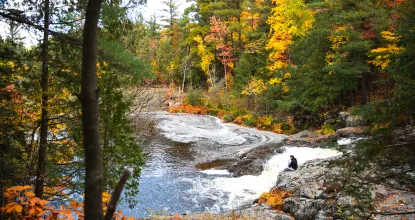Park-Based Learning: Youth Engagement in Climate Change
Parks Stewardship Forum call for papers!
This special issue of the open-access journal Parks Stewardship Forum (PSF) will explore the variety of ways youth can be engaged in climate action through park-based learning. We invite researchers, educators, managers, and partners to share case studies, research notes, activity guides, and other inspiring ideas to engage the next generation in transformative and empowering learning experiences. This issue is a continuation of work featured in a previous PSF special issue (May 2020) entitled America's Largest Classroom: Expanding the Role of Education in our Parks.
For this issue, we are looking for:
- Field case studies that clearly explain the climate-related impacts your park/area/site is dealing with, what resources or values are at stake, and how your staff is engaging youth in learning about these changes, potential impacts, and what specific activities or programs you have implemented or plan to implement to empower K-12 engagement.
- Research notes reviewing best practices and key literature in park-based learning, climate change education, transformative learning, high-impact practices, and other topics related to youth engagement in climate change learning and action.
- Activity guides (e.g., instructional sequences) that offer a framework for other parks, educators, or organizations to replicate and extend the proposed experience to a new audience or in a new location. We are eager to see solutions-oriented programs and hope to highlight methods and approaches that can be adopted by other park/area/site managers, interpreters, educators, and partners.
Want to know more? Find the full call for papers here.
Ready to submit? Click here.

America's Largest Classroom
NMU Vice President of Sustainability and alumna Jes Thompson co-edited America's Largest Classroom: What We Learn From Our National Parks. Learn more about Dr. Thompson's involvement here.
America's Largest Classroom features 21 chapters from authors across the country. It is a collection of case studies about different types of place-based learning programs on topics such as indigenous knowledge, climate change, environmental justice, citizen science, and inclusivity at parks and public lands. The book offers insight and practical advice for improving educational outreach at national parks, as well as suggestions for classroom educators on how to meaningfully incorporate National Park Service sites into their curricula.
